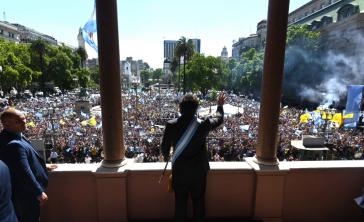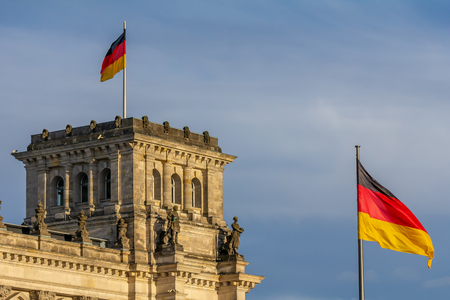Parallels between Argentina and Germany
Parallels between Argentina and Germany

What Argentina 100 years ago and today’s Germany have in common
Once rich, Argentina’s policies and redistribution plunged it into the abyss.
“The case of Argentina is empirical proof that no matter how rich you may be… if measures are taken that hinder the free functioning of markets, competition, price systems, trade and the ownership of private property, the only possible fate is poverty.” This is what the newly elected Argentine President Javier Milei said in his speech in Davos in January.
Indeed: 100 years ago, Argentina was one of the richest countries in the world. Its gross domestic product per capita was on a par with Western Europe. If the country had developed in recent decades like countries with a comparable economic structure, according to a study, its per capita income would today be on the level of New Zealand (US$51,967) instead of Mauritius (US$26,505). Argentina would be a rich country and not a country that is pinning its hopes on an “anarcho-capitalist” to initiate a turnaround.
If you look at the country’s history over the past 100 years, you have to realize that populist governments and military dictatorships that have alternated in power have relied on client politics and redistribution, while at the same time intervening more and more in the economy. If you read the economist Rok Struk’s analysis of the causes of the misery, you cannot help but see some similarities to what is increasingly shaping politics here too.
The state intervened more and more in the free markets, which led to the preference of dominant interest groups and the orientation of the economy towards state funding and subsidies rather than productive economic activity. A series of nationalizations increased the share of state activities in the economy. This was accompanied by price controls and further restrictions on property rights, such as the prohibition of eviction of non-paying tenants.
In Germany, citizens are experiencing something similar: the state, driven by the politically defined goal of “transformation”, is increasingly intervening in the economy, even to the point of guaranteeing profits if companies behave accordingly – known as contracts for difference.
Parallels between Argentina and Germany
Closely linked to this was an expansion of the public sector in Argentina, where jobs were created to provide for political allies. In this country, the traffic light coalition alone has created 11,500 additional civil service jobs, according to an analysis of federal budgets and job plans by the New Social Market Economy Initiative at the end of January. According to the “Redaktionsnetzwerk Deutschland”, the 46 newly created positions as “special representatives” of the federal government alone cost 30 million euros annually.
A populist income and wealth redistribution policy has also been the focus in Argentina. The expansion of the welfare state and an ever more extensive redistribution policy are also high on the agenda here. For years, the share of social spending in the federal budget has been rising, and the calls for wealth taxes, capital levies and higher inheritance taxes are unmistakable.





